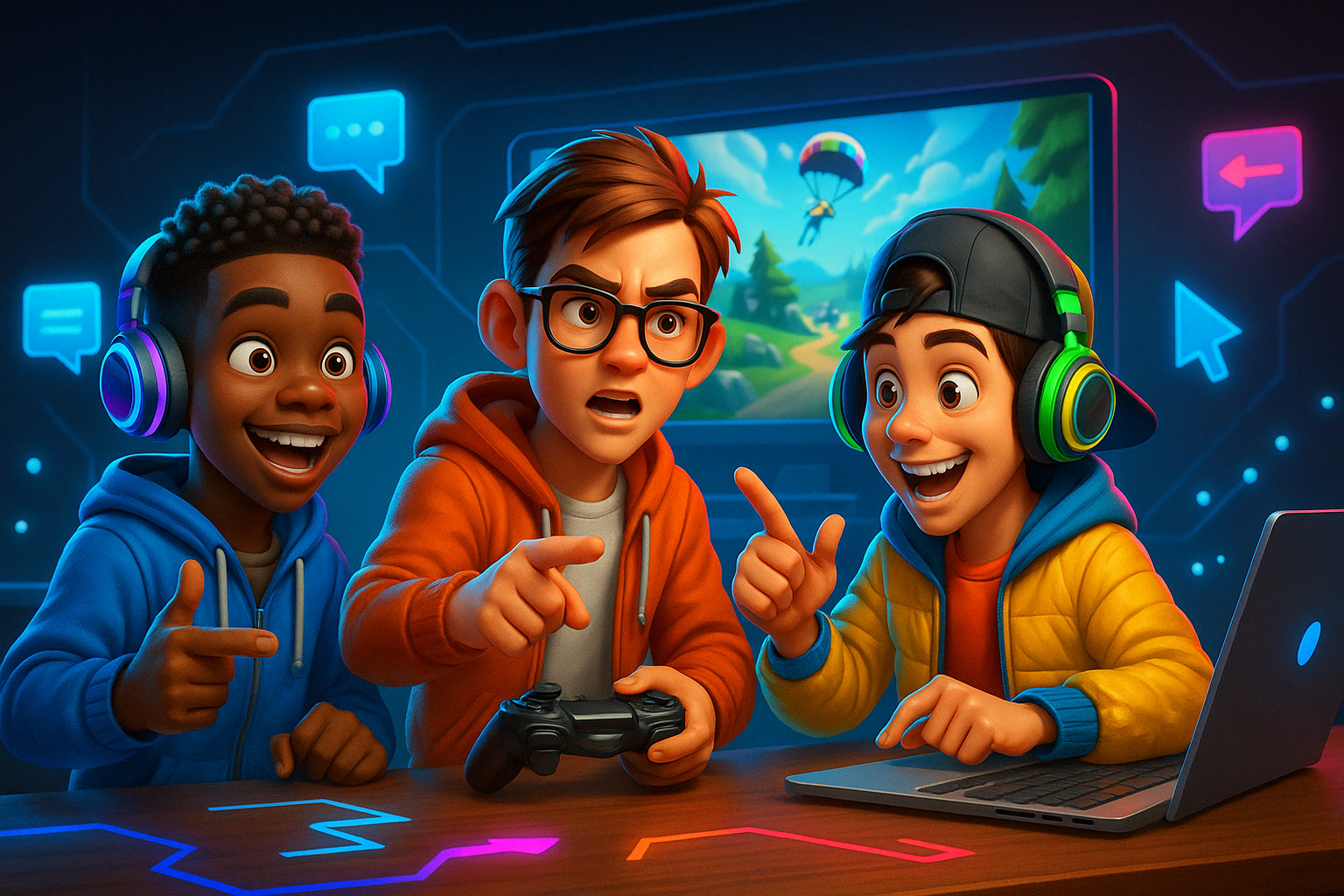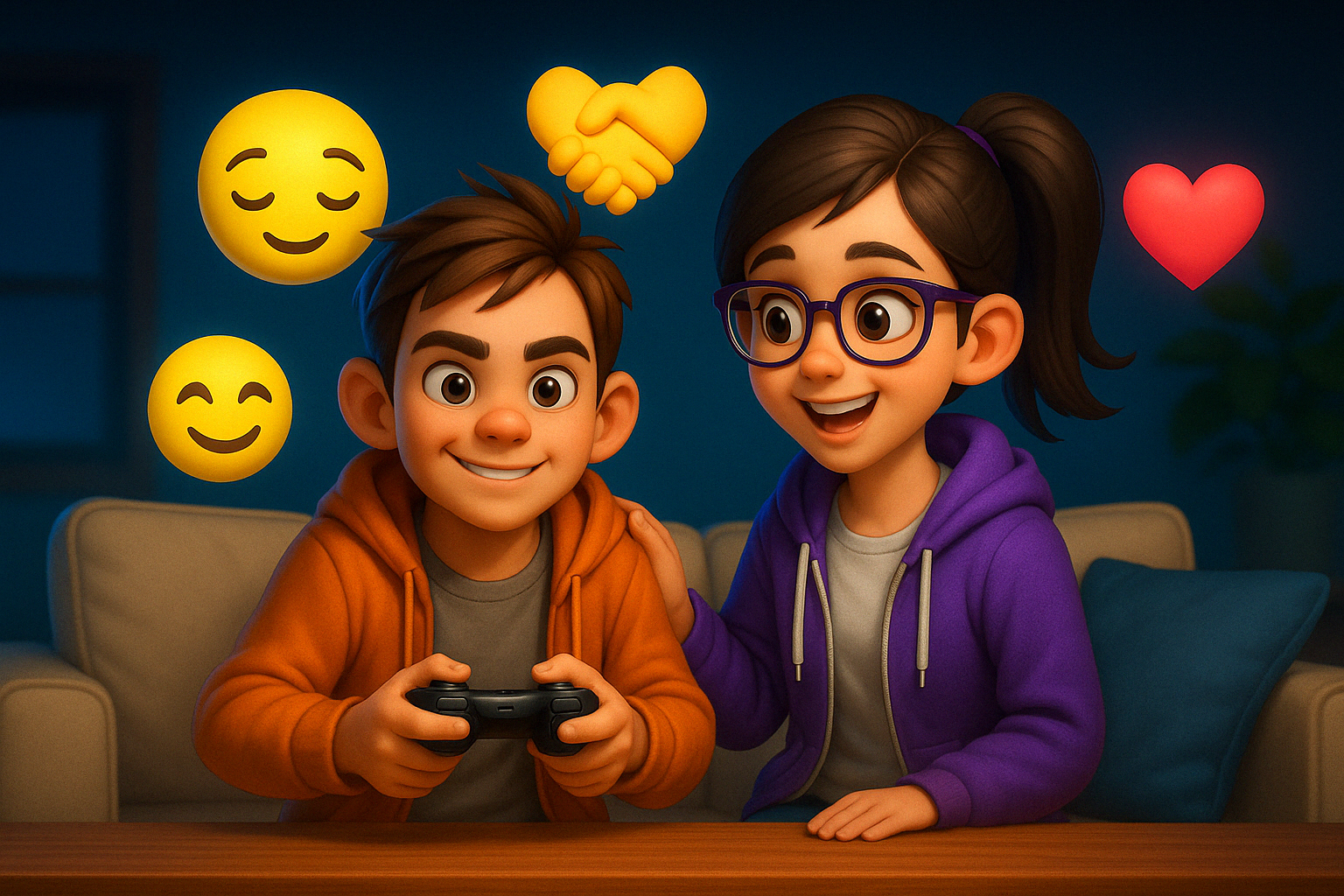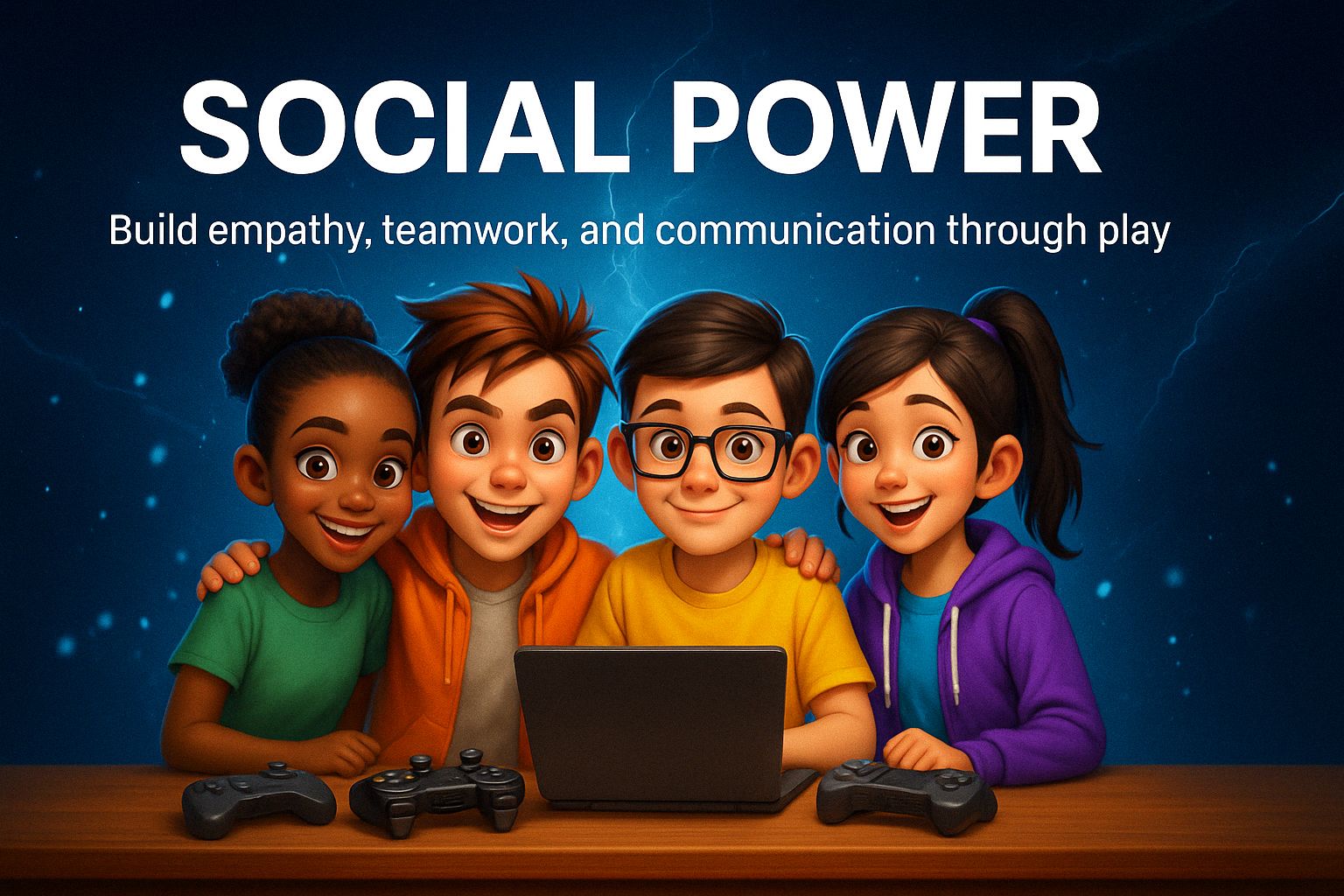April 16, 2025
Social Power – Building Empathy, Teamwork, and Communication
Video games are more than entertainment – they’re social playgrounds where kids can develop core interpersonal skills. In fact, social and emotional learning (SEL) thrives in multiplayer game worlds. Psychologists even note that empathy and communication are trainable skills that kids can hone through gameplay (greatergood.berkeley.edu). When children team up in Fortnite squads or collaborate on a Roblox challenge, they practice working with others and understanding different perspectives. These fun digital interactions can translate into real-world kindness and connection.
Teamwork & Leadership:
Modern games often require cooperative play – from coordinating tactics in a Fortnite match to building together in Minecraft. Research shows such teamwork in games creates “virtual social communities” where kids quickly learn whom to trust, how to lead a group, and how to cooperate to win (boston.com). Not only do they succeed in-game, they’re also more likely to be helpful to others offline after playing games that encourage cooperation
(boston.com)
.In other words, teaming up in a game can nurture a child’s helpfulness and leadership in real life.

Empathy & Kindness:
Some gaming experiences actively foster empathy. For example, Harvard researchers found that a virtual role-play game improved kids’ ability to recognize others’ feelings and even strengthened brain networks for empathy (greatergood.berkeley.edu). As Dr. Richard Davidson explains, empathy is a first step toward prosocial behavior – if kids can empathize with others’ problems, they’ll be more motivated to help
(greatergood.berkeley.edu). Even major youth organizations are promoting this empathetic play: Harvard’s Making Caring Common project partnered with Cartoon Network on a “Play Positive” campaign that gives kids tips to prevent bullying and encourage kindness while gaming (mcc.gse.harvard.edu). By walking in another’s shoes – whether an alien in a story-driven game or a friend on the team – children practice caring and compassion. Shared gaming experiences can even make young people “more inclined to help one another, in both online and real-world settings.” (mainleaf.com)

Communication Skills & Friendships:
Online games are a social hub for many kids, including those who may be shy in person. Wearing a headset and strategizing in-game, children naturally practice clear communication, cooperation, and conflict resolution. In fact, studies find gaming can boost social confidence: shy or introverted kids often find it easier to meet friends through gaming, which helps them build communication skills that transfer to real-life situations
southwesthealth.org
. Nearly half of teens even say they’ve made new friends through online games and that gaming strengthened their real-world friendships
apa.org
. For parents, it’s encouraging to know that when your child is chatting about missions or trading tips in Roblox, they’re not just having fun – they’re learning to express themselves, listen to others, and be part of a team, all essential SEL skills.

